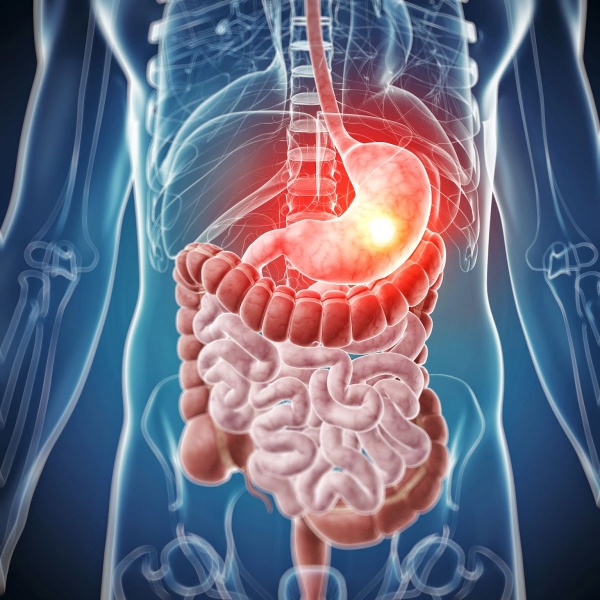
A new concept of microbiome problem and gastrointestinal diseases
18.04.2019
In March 2019, with the support of Valenta Farm, a symposium “New in understanding the problem of the microbiome” took place. This event was a part of 112th International Spring Session of the National School of Gastroenterology, Hepatology. This event was at the head by chief freelance gastroenterologist of the Ministry of Health of Russia, academician of the Russian Academy of Sciences, Professor Vladimir Trofimovich Ivashkin. Scientific work was presented to the specialists of the symposium and devoted to clinical demonstrations and analysis of patients.
MD, Professor of the Department of Propedeutics internal diseases of Sechenov Moscow State Medical University - Elena Alexandrovna Poluektova presented a report “Microbiome and motility disorders - two sides of the same coin?”. Doctor called attention at connection of microbiome and motility of the gastrointestinal tract. She gave detailed for intestinal microbiota and described the mechanisms of influence at motion of the gastrointestinal tract. Finally, expert told new modern methods in different of the gastrointestinal tract diseases about.
“In a number of gastrointestinal diseases, the combination of probiotic strains of bifidobacteria and lactobacteria (Florasan®-D) demonstrates high efficiency. The bacteria in this preparation are enclosed in a special acid-resistant capsule, which allows them to be protected from the aggressive contents of the stomach. Data from studies have shown that Florasan®-D shows high efficiency in arresting manifestations of irritable bowel syndrome. It is important to note that in order to achieve an optimal therapeutic effect in patients with IBS, in the treatment regimen it is advisable to use motility modulating drugs (Trimedat® Forte) and probiotics that have proven their positive effect on the symptoms of the disease (Florasan®-D)” – said Elena Alexandrovna.
Of late during science discussions, doctors and scientists refer problems of gastrointestinal upset increasingly. The symptoms of these disorders are characterized by personal sensations of abdominal distension or excessive gas accumulation in the gastrointestinal tract. Abdominal distention may become a cause by functional disorder gastrointestinal tract diseases or flow independently as a functional violation of the gastrointestinal tract.
Postgraduate Anatoly Igorevich Uljanin of Clinic of Propedeutics of Internal Diseases, Gastroenterology and Hepatology V.H. Vasilenko First MGMU Sechenov told that every fifth adult today has symptoms of bloating. Over 70% of the gas is adsorbed in the intestines or utilized by the intestinal microbiota. The diet can directly affect the composition of the intestinal microbiota.
He reported that changes in the intestinal microbiota can independently lead to the development of the main symptoms of functional disorders and it can also indirectly trigger a cascade of events, which includes inflammatory processes leading to impaired motility, visceral sensitivity and psycho-emotional disorders that trigger a reaction with the development of the main symptoms of functional diseases, including those accompanied by bloating.
As an example, the expert cited a study in which 30 patients with functional diseases between the ages of 25 and 65 and healthy volunteers between the ages of 21 and 63 took part.
First, the symptoms of the participants were analyzed against the background of the usual diet, as well as changes in symptoms during its replacement.
As soon as products containing a large amount of vegetables, fruits, and cereals that contribute to excessive gas formation were added to the participants’ diet, all participants in the study reported abdominal bloating symptoms.
“This suggests that a change in diet is a predictor of the onset of bloating symptoms in both healthy people and patients with functional bloating”, - said Anatoly Igorevich.
The expert believes that bloating can prevent alpha-galactosidase: “Taking alpha-galactosidase with food reduced the splitting activity of complex carbohydrates by colon organisms. At the same time, patients who consumed alpha-galactosidase noted a decrease in bloating episodes, including patients with intolerance to galactooligosaccharides. In addition, alpha-galactosidase can be used as an adjuvant therapy in patients with IBS. We recommend that patients take alpha-gadaktozidazu along with the first portion of food, which may cause increased gas formation”.
Alexander Sergeevich Trukhmanov, MD, Professor of the Department of Internal Medicine Propaedeutics of the Sechenov First Moscow State Medical Universi ty spoke about the etiology and pathogenesis of duodenogastric (DGR) and duodenogastroesophageal (DGER) reflux diseases that often accompany various gastrointestinal diseases.
The expert described in detail the reflux gastritis that occurs in patients with DGR, the role of DGER in the development of gastroesophageal reflux disease (GERD) and Barrett's esophagus, as well as modern treatment options for DGR and DGER: “There are still no clinical guidelines for the treatment of DGR and DGER, but we know that their drug treatment includes antacids, prokinetics, ursodeoxycholic acid, and is carried out in conjunction with the basic therapy of the underlying disease. Among antacids, I would like to draw attention to the combined preparation of the new generation Antarite® (Magaldrat + Simethicone), which not only neutralizes hydrochloric acid and binds bile acids, but also increases the resistance of the mucous membrane of the stomach and esophagus to the effects of aggressive components of refluxate, but also contributes to healing of the gastric mucosa ".
